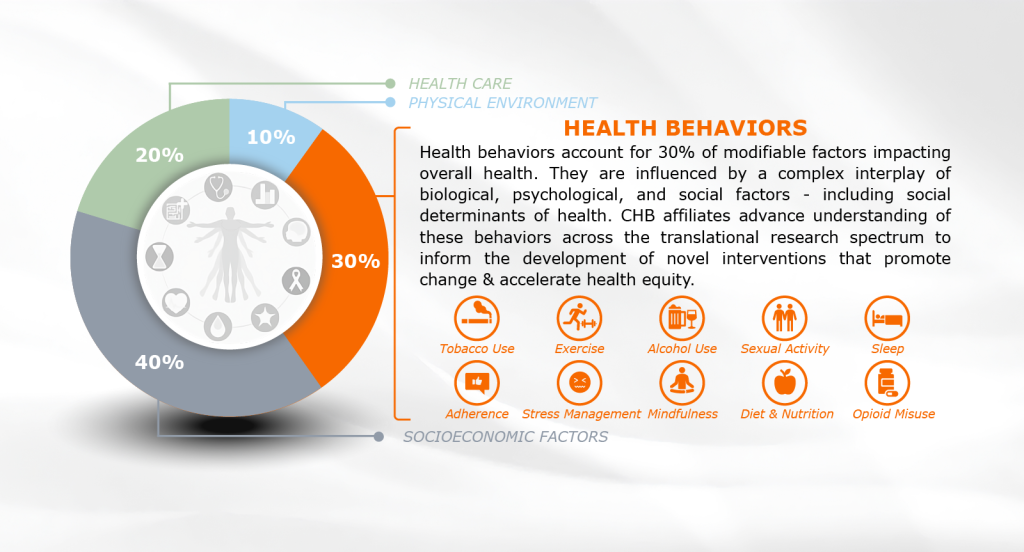Health behavior encompasses the actions and decisions that impact an individual’s physical and mental health. This includes activities like physical exercise, eating well, avoiding harmful habits like smoking and excessive drinking, and adopting preventive measures such as vaccinations. By identifying patterns and determinants of these behaviors, researchers can develop customized interventions to encourage healthier living, lower chronic disease risk, and improve life quality across diverse populations.

Behavioral health is closely connected to health behavior, focusing on the emotional, psychological, and social well-being of individuals. It encompasses the study, prevention, diagnosis, and treatment of mental and substance-related disorders, emphasizing the equal importance of mental and physical health in achieving overall well-being.
Biobehavioral interplay highlights that health outcomes and disease susceptibility are influenced by a combination of biological processes and interaction with health behaviors and psychosocial factors such as cognition, stress, health beliefs and attitudes, and social support, among others.
Psychosocial determinants of health refer to psychological and social factors that influence health and well-being at the individual level. These can include attributes (e.g., coping skills, emotional factors, mental resilience, self-esteem, perceived control, and stress management), experiences of stigma and discrimination, social factors (e.g., interpersonal relationships, social support systems, and community networks), and psychological impacts of socio-economic status, as well as the influence of cultural beliefs and expectations. Psychosocial determinants complement the broader social determinants of health, which encompass environmental and societal conditions such as economic stability, living conditions, and access to healthcare, affecting groups and communities at large.
Innovation in the context of health behavior research involves the development and application of novel concepts, methods, and technologies to promote health and prevent disease. This includes identifying and developing innovative solutions to complex health challenges, such as creating more effective and accessible assessments/interventions and leveraging emerging methods and digital tools for monitoring and intervening upon interplay between cognition, behavior, and health.
Team science is an interdisciplinary approach that brings together experts and stakeholders from various fields to address complex scientific questions. By combining knowledge, skills, and perspectives across scientific boundaries, team science facilitates a more comprehensive understanding of health behavior and enhances innovation in research, leading to more effective solutions and the translation of emerging research findings into effective policies and practices.
The intersection of health behavior and population health underscores the pivotal role of both individual and group behaviors in shaping community health outcomes. By integrating insights from health behavior research into the framework of population health—and vice versa—we can more effectively promote wellness, prevent disease, and manage chronic conditions, thereby improving overall community health. This collaborative work can further inform policy making, fostering the development of environments that better support healthy choices, access to care, and human thriving.
